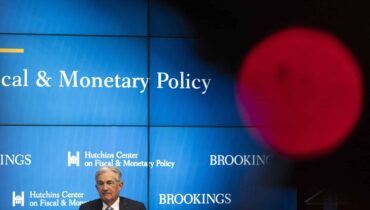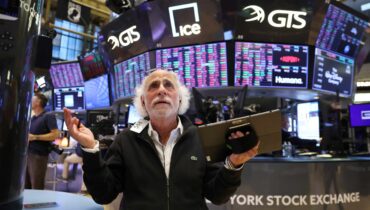The environment for the financial markets remains highly uncertain. The further development of inflation and economic growth is not sufficiently foreseeable. This points to continued high fluctuations in asset prices.


The environment for the financial markets remains highly uncertain. The further development of inflation and economic growth is not sufficiently foreseeable. This points to continued high fluctuations in asset prices.

The indications that the inflation peak will be exceeded are growing. If the relationship between inflation surprises (upside) and asset prices (downside) were to hold, that would be, all other things being equal, good news for the financial market.
On Black Friday and Cyber Monday, many retailers traditionally draw shoppers with discounts and special offers. In view of high inflation and rising interest rates and their potential impact, the financial markets are looking particularly eagerly to the two big holiday shopping days this year.

So far this year, high inflation rates have been the driving factor on the financial markets. This could now change, as Chief Economist Gerhard Winzer writes. Disappointingly weak indicators of economic activity could now increasingly come into focus.

The rise in inflation in the USA was recently lower than expected, which led to a significantly brighter mood on the markets. However, a favourable inflation report is not yet a trend, as Chief Economist Gerhard Winzer emphasises.

More and more central banks are signalling a reduction in the pace at which they are raising key interest rates. However, as Chief Economist Gerhard Winzer explains, this does not necessarily mean that central banks are softening their focus on fighting inflation. Rather, a pause in the rate hike cycle would require a change in inflation dynamics.

This year brought a turning point in the monetary policy of the major central banks. The crucial question is whether this turning point is cyclical or structural. It is therefore worth taking a look at the neutral interest rate, as this captures structural macroeconomic changes.

The soaring US dollar is causing problems in countries outside the USA. In Japan, the Yen has weakened considerably recently because, unlike the other central banks, the Bank of Japan is sticking to its ultra-loose monetary policy. Against this backdrop, the meeting of the Japanese central bank next Friday will be more in focus than usual.

Global equity markets have been under pressure for several months. The short recovery phase in the summer did not last long. What are the reasons for the bear market and when could be a good time to enter?
The mood among investors in the bond sector in emerging markets is mixed, as this year’s Emerging Markets Credit Conference held by US investment bank J.P. Morgan showed. Thomas Oposich, Senior Fund Manager, reports on the conference and his impressions.